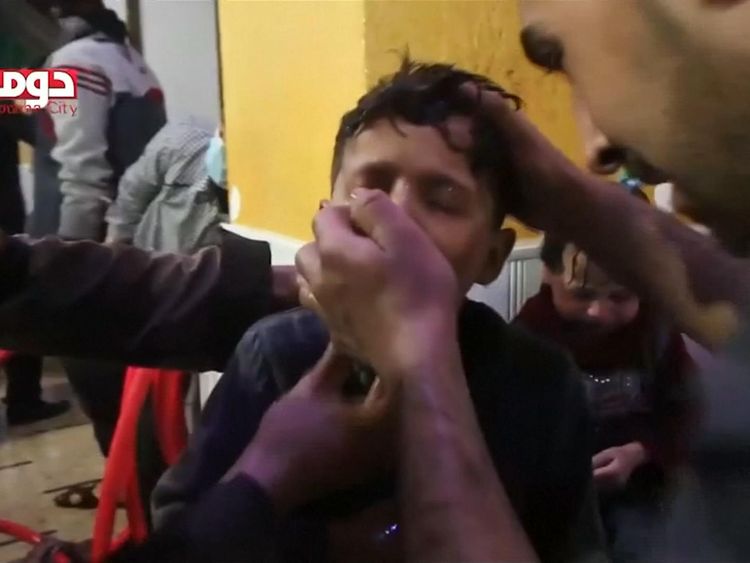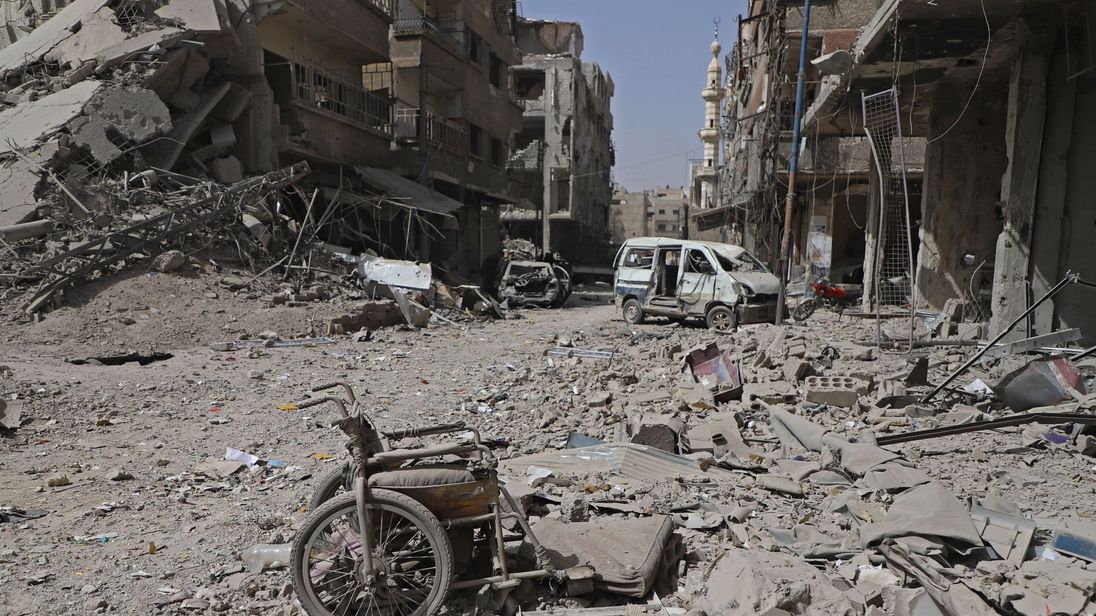
'The intensity of a Russia-backed assault on a former rebel stronghold in Syria using suspected chemical weapons and cluster bombs has been laid bare in a new report by the Atlantic Council, which said 16,934 strikes were documented in eastern Ghouta during a 49-day assault in April of this year.
This amounted to an average of 345.6 per day. The heaviest day of bombardment was 21 February, with 1,658 attacks recorded, it said.
"Locals reported that corpses and body parts were often left rotting under the rubble and even strewn in the streets due to the danger and difficulty in retrieving them," according to the report.
"Multiple victims were buried in mass graves with merely numbers attached to their improvised shrouds, as relatives and friends were unable to reach the hospitals and morgues to identify their loved ones."
The report counted "at least six suspected chemical weapon attacks, five of which were verified". The deadliest chemical weapons attack was on the besieged town of Douma on 7 April in which dozens of people died.
The report said: "The régime's takeover of Ghouta… was the culmination of years of 'kneel or starve' siege tactics, indiscriminate aerial bombardment, cynical manipulation of truce and ceasefire, and the likely use of chemical weapons against population zones. The significance lies less in the régime using these tactics - it was reasonable to expect it would do anything it could to ensure its own survival-than in the fact that it not only went unpunished for, but ultimately was rewarded by, the fall of Ghouta."
The Atlantic Council heavily criticised the international community for failing to respond to stop all of the other deadly assaults by Assad forces and their Russian and Iranian backers, below the level of chemical weapons.
"Not once in six years of war in Ghouta was there a meaningful international effort to disrupt Assad's atrocities or exact a serious price for them," the report said.'

0 Response to "Corpses left rotting under rubble in régime attacks on Ghouta"
Post a Comment